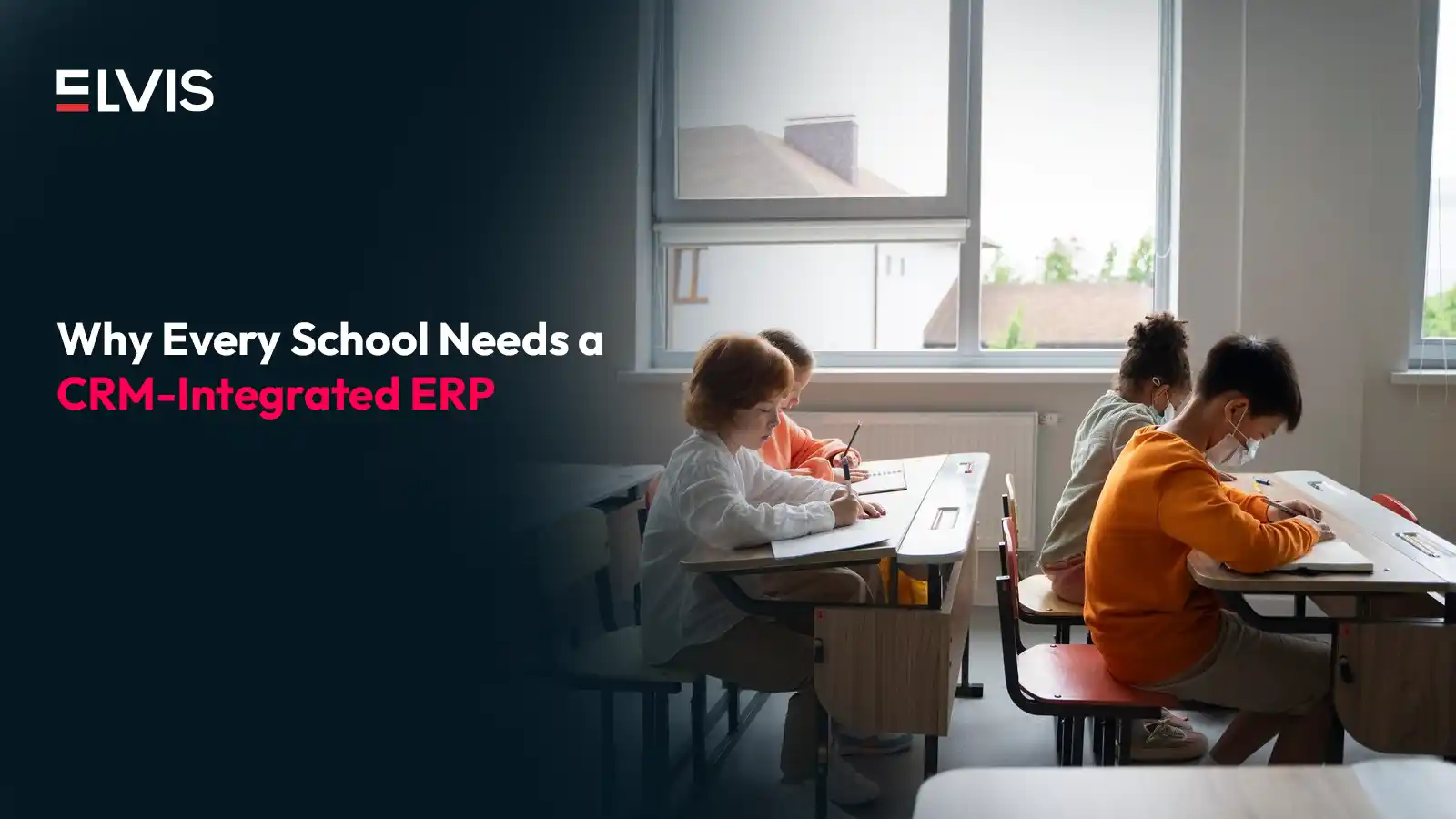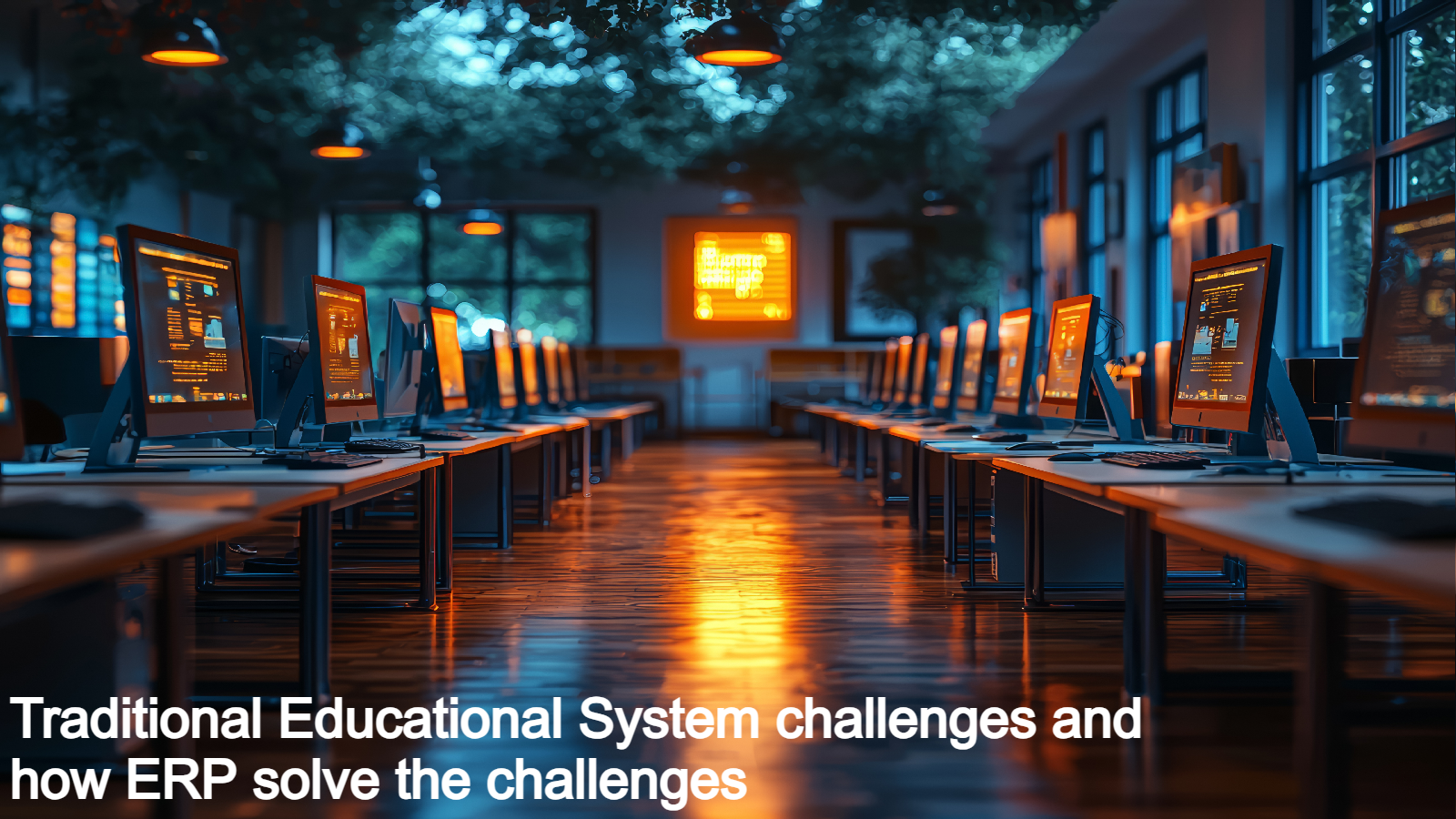Introduction
Today, we live in a fast-paced educational environment where schools face many challenges that require simple solutions.
One such solution gaining significance is the integration of Customer Relationship Management (CRM) with Enterprise Resource Planning (ERP) systems.
In this blog post, we explore why every school needs this transformative integration.
Enhanced Student Engagement and Retention
Student engagement and retention are crucial for an educational institution’s success. A CRM-integrated ERP empowers schools to personalize students’ interactions, encouraging stronger connections and a sense of belonging.
By using data on student preferences, performance, and behavior, schools can customize learning experiences to each student and their individual needs which boosts engagement and retention rates.
Efficient Communication and Collaboration
Effective communication and collaboration among staff, students, and parents are two essential aspects of a successful educational environment. With a CRM-integrated ERP, schools can centralize communication channels, enabling seamless interaction between stakeholders.
Through this integration, send automated notifications about events and deadlines as well as provide instant access to study materials, enhancing transparency and fostering a collaborative ecosystem.
Streamlined Administrative Processes
Educators spend a significant amount of time on administrative tasks which takes their attention away from what matters – teaching. By integrating CRM functionalities into the ERP system, schools can automate routine administrative processes, such as admissions, scheduling, and student record management. This automation not only reduces administrative burden but also minimizes errors and improves data accuracy.
Data-Driven Decision Making
In today’s world, data plays a critical role in the decision-making process for educational institutions. An ERP system integrated with a CRM tool can provide schools with insights into various aspects of their operations, including student performance, resource allocation, and financial management.
By analyzing this data, school administrators can identify trends, anticipate challenges, and implement strategies to improve overall efficiency and effectiveness. This helps institutions to make informed decisions and achieve their goals effectively.
Personalized Learning Experiences
Each student is different, resulting in specific learning styles and strengths. By integrating an ERP system with a CRM, schools can develop a learning experience that is modified for each student. This means schools can track student development, detect areas in need of improvement, and suggest personalized tools that can help students learn better. It’s all about creating a positive learning environment that empowers students to achieve their full potential.
Improved Parental Engagement
Involving parents is very crucial in a student’s overall school performance. By integrating an ERP with a CRM, parents are informed about their child’s academics, attendance, and extracurricular activities, which encourages active communication. Through the use of parent portals and mobile apps, parents can get real-time updates, communicate with teachers and actively participate in their child’s education.
Enhanced Financial Management
Integrating Customer Relationship Management (CRM) and Enterprise Resource Planning (ERP) can simplify financial operations like budgeting, invoicing, and fee collection. It also provides valuable insights into revenue streams and expenditure patterns. By improving financial processes, schools can allocate resources more efficiently, maximize revenue generation, and ensure financial responsibility.
Conclusion
The integration of Customer Relationship Management (CRM) with Enterprise Resource Planning (ERP) systems has several advantages for educational institutions. These include improved student engagement, higher retention rates, streamlined administrative processes, and data-driven decision-making. By utilizing the power of technology and data analytics, schools can create a comprehensive educational environment that focuses on personalized learning, effective communication, and collaboration. Adopting this integration is not only beneficial but also crucial for every school looking to succeed in today’s competitive digital age.
Frequently Asked Questions (FAQs)
Why is the integration of CRM with ERP systems becoming important in schools?
The integration of CRM with ERP systems is becoming vital in schools due to the myriad of benefits it offers. From enhancing student engagement and retention to streamlining administrative processes and improving financial management, this integration addresses several challenges faced by educational institutions in today’s fast-paced environment. By leveraging technology and data analytics, schools can create a more personalized, efficient, and collaborative educational environment.
How does a CRM-integrated ERP enhance student engagement and retention?
A CRM-integrated ERP empowers schools to personalize student interactions by utilizing data on preferences, performance, and behavior. This customization allows for tailored learning experiences that resonate with individual student needs, ultimately boosting engagement and retention rates. By fostering stronger connections and a sense of belonging, schools can create a conducive environment for student success.
What are the advantages of efficient communication and collaboration through CRM-integrated ERP systems?
Effective communication and collaboration are crucial for a successful educational environment. With a CRM-integrated ERP, schools can centralize communication channels, facilitating seamless interaction between staff, students, and parents. This integration enables automated notifications, instant access to study materials, and enhanced transparency, thereby fostering a collaborative ecosystem conducive to academic excellence.
How does integrating CRM functionalities into the ERP system streamline administrative processes?
Integrating CRM functionalities into the ERP system automates routine administrative tasks such as admissions, scheduling, and student record management. This automation not only reduces administrative burden but also minimizes errors and improves data accuracy. By streamlining administrative processes, educators can focus more on teaching, ultimately enhancing the overall efficiency of the educational institution.
Why is data-driven decision-making important in today’s educational landscape?
In today’s educational landscape, data-driven decision-making is crucial for institutions to stay competitive and achieve their goals effectively. An ERP system integrated with a CRM tool provides valuable insights into various aspects of operations, including student performance, resource allocation, and financial management. By analyzing this data, school administrators can identify trends, anticipate challenges, and implement strategies to improve overall efficiency and effectiveness.
How does integrating an ERP system with a CRM facilitate personalized learning experiences?
Integrating an ERP system with a CRM allows schools to develop personalized learning experiences tailored to each student’s unique needs. By tracking student development, detecting areas for improvement, and suggesting personalized tools, schools can create a positive learning environment that empowers students to achieve their full potential. This customization enhances student engagement and academic success.
What role does parental engagement play in a student’s overall school performance?
Parental engagement is crucial in a student’s overall school performance as it fosters a supportive learning environment and enhances communication between home and school. Integrating an ERP with a CRM allows parents to stay informed about their child’s academics, attendance, and extracurricular activities. Through parent portals and mobile apps, parents can receive real-time updates, communicate with teachers, and actively participate in their child’s education, thus contributing to their academic success.
How does integrating CRM and ERP systems improve financial management in schools?
Integrating CRM and ERP systems simplifies financial operations such as budgeting, invoicing, and fee collection, while also providing valuable insights into revenue streams and expenditure patterns. By improving financial processes, schools can allocate resources more efficiently, maximize revenue generation, and ensure financial responsibility. This integration enhances financial management practices, contributing to the overall success and sustainability of educational institutions.
What are the key takeaways regarding the integration of CRM with ERP systems in schools?
The integration of CRM with ERP systems offers numerous advantages for educational institutions, including improved student engagement, higher retention rates, streamlined administrative processes, and data-driven decision-making. By leveraging technology and data analytics, schools can create a comprehensive educational environment that focuses on personalized learning, effective communication, and collaboration. Adopting this integration is not only beneficial but also crucial for every school looking to succeed in today’s competitive digital age.








